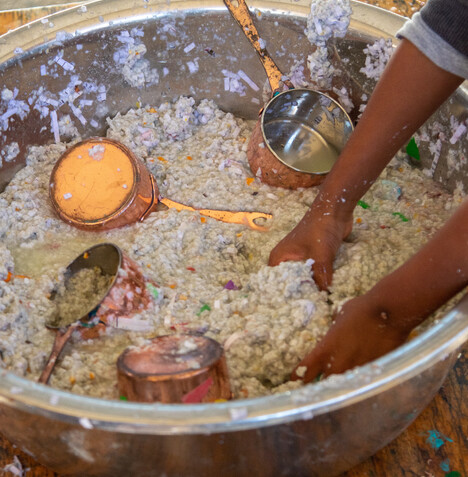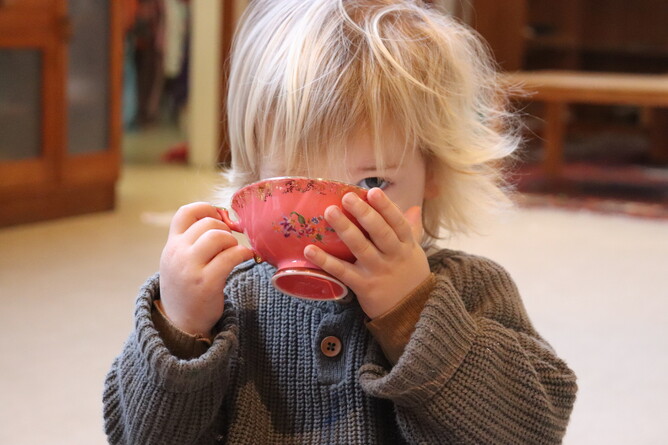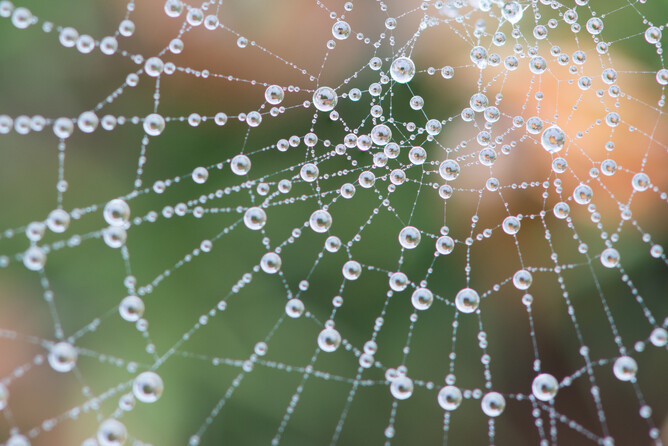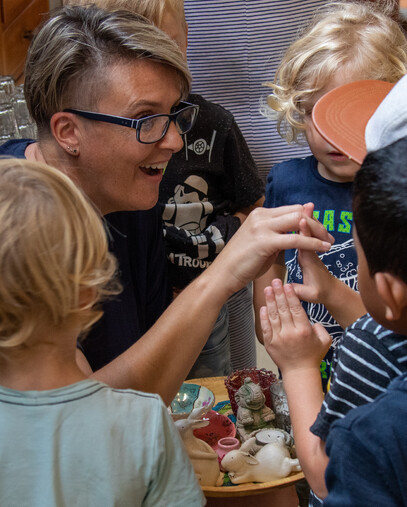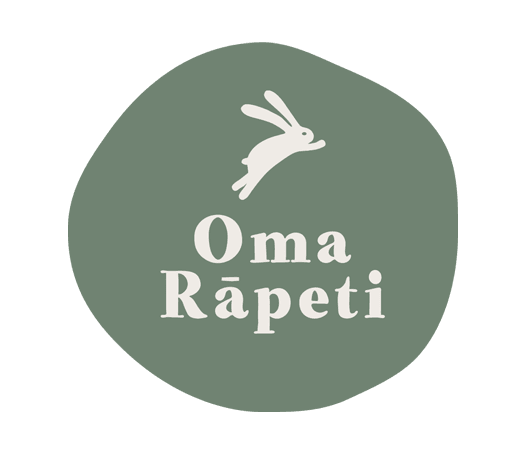What does it really mean, and why is philosophy important?
When it comes time to choose an ECE service, we believe it’s vitally important to understand the philosophy of the centre - so important that we think it should be one of the very first things you look at!
It can be something many parents overlook, but the number of ECE centres around are almost endless (especially in a highly populated city like Auckland). How do you know which centre is the right centre for you? How do you choose a place to send your tamariki that feels right, has beautiful teachers you connect with, and provides an environment that supports your child to their full potential?
Do you look at Montessori? Steiner? Pikler? The kindy down the road? The centre across town that has great reviews on the local Facebook page? We believe that the philosophy of a centre is like the beating heart and soul of the curriculum – so it makes sense that when you’re choosing a centre, you make sure you take the time to understand it. The philosophy that a centre is built on underpins everything – the way teachers interact with children, the community around the centre, the environment that your child will be playing in and, perhaps most importantly, a philosophy influences the feel (wairua) of a centre when you and your child walk through the doors each morning.
What is an ECE Philosophy?
Philosophy statements are used by ECE centres to share the values and beliefs that frame their programme.
A philosophy influences every aspect of the child’s day, from the way the environment is set up, to the role that teachers have in guiding children’s play. It even influences the way conversations and relationships are formed between kaiako and children. If the centre has an underlying value like respect, then the teachers will always involve the children in respectful, reciprocal conversations about the day and activities they’d like to explore.
A philosophy draws together everything that the ECE centre believes about education.
We believe all parents should look at, understand, and ask questions about a centres philosophy before enrolling their child; it will point them towards the underlying beliefs that guide all the practices that the centre has. When your parenting philosophy aligns with a centre philosophy you’ll find a place that meets your child’s needs, and where you feel comfortable as a contributing part of the centre whānau. It’s really important that you agree with the foundations the centre is built on!
A philosophy connects the concepts of teaching and learning together – it describes and justifies the way teaching happens like it does, and the context around what’s happening.
You can read our Oma Rāpeti Philosophy here.
What do different philosophies mean?
Every centre builds their own philosophy statement, and their teaching and environment will reflect what that is.
There are also some strong early childhood philosophies / theories that inspire many ECE centres and kindergartens in NZ, and you may have heard about or seen some of them. Here’s a really quick breakdown of each one.
Some common ECE theories:
Pikler
Dr Emmi Pikler inspired this approach. It’s based on kind and respectful relationships between adults and children, gentle care moments, naturally paced motor development, free movement and uninterrupted play.
Read more about Pikler philosophy here
Magda Gerber’s RIE
The basis of Magda's Gerber's RIE philosophy is to respect and trust children to be the initiator, the explorer, and a self learner. Sensitive observation of children allows teachers to understand their needs, and the child is involved in care routines as an active participant.
When you’re in a RIE centre, you’ll notice teachers observing children in their own space - they’ll take the time to get to know each child individually and see what they’re capable of. Teachers will then provide children with an environment that will foster their ongoing exploration of their world. Children in RIE environments are trusted as being competent and capable, so they’re always given opportunities to do things for themselves - growing a wonderful sense of accomplishment and a lifelong love of learning.
Read more about RIE here
Montessori
The Montessori method is based on self-directed activity, hands-on learning and collaborative play. In Montessori classrooms children make creative choices in their learning, while the classroom and the Montessori trained teacher offer age-appropriate activities to guide the process.
Read more about the Montessori philosophy here
Reggio Emilia
Centres inspired by the Reggio Emilia approach value the child as central to their own learning; they’re able to pursue their own interests and revisit and build upon ideas at their own pace. A Reggio-inspired environment is often referred to as ‘the third teacher’; the room and resources within are chosen and strategically designed to enhance the child’s play. In it’s essence the room enables uninterrupted exploration, play and learning, acting as “the third teacher.”
Read more about Reggio Emilia inspired philosophy here
Waldorf Steiner
A Waldorf perspective believes that in the first seven years children learn through example and imitation. Children learn themselves - not through instruction. Learning takes place through play, as they imitate what they perceive in the world around them.
Teacher led learning takes place throughout the day through story-telling and song.
Read more about the Steiner approach here
Each of these philosophies have a very different take on what the ideal environment of an ECE centre should feel like, what the teacher:child relationship should look like, and the type of resources and activities that are provided during the day.
Why does a centre need a philosophy?
In a nutshell, we all need a philosophy in our centre to tell everyone who visits us why we are special! No two philosophies will be exactly alike. It tells everyone what we hope to achieve as a centre, and why our environment is the way that it is.
A centre philosophy doesn’t have to be long, but it should be clear about why the service exists and what they stand for. A centre philosophy will usually be based on, or inspired by, a strong ECE theory (like Pikler and the work of Magda Gerber). In Aotearoa, centres and kindergartens also look toward the underpinning values of Te Whāriki (the National Early Childhood Curriculum of Aotearoa).
As you’ll be able to see from the variety of theories above, there are differences in the way a philosophy can influence how children are cared for in a centre. A lot of centres will be guided by these theories, and add their own nuances and beliefs into their philosophy – weaving the two together.
For example: A Reggio Emilia inspired centre may have a large inside atelier with lots of natural light, while another centre inspired by the same philosophy will focus more on the outdoor environment and nature. Both are inspired by Reggio Emilia, but the outcome will be slightly different because the personal philosophy of the centre has different influences.
Who influences a centre philosophy?
Everyone who has a part to play in the centre environment has the opportunity to contribute:- parents/whānau
- educators
- coordinators
- the service provider
The philosophy is the beating heart of the centre, the soul of the curriculum and the spirit that nourishes your child’s day when they are in care – so you want to make sure it beats in time with yours as well.
Oma Rāpeti Philosophy
A strong philosophy is important because this shapes how your child’s day will be while at your chosen centre.
We’re guided by the work of Pikler, RIE and Te Whāriki at Oma Rāpeti – children always come first.
The key aspects of our approach are:
A main carer system
Every moment of the day is an opportunity to communicate, reconnect, and encourage participation from our children
We trust that our children are competent and capable
Strong social and emotional support
A safe, challenging, and predictable environment
A "home away from home"
The outdoors and open-air play are essential for a healthy body, mind and spirit
High-quality nutrition is important for health, well-being, growth, and development
Read about what a child’s day looks like at Oma Rāpeti here.
Children at Oma Rāpeti are empowered and involved in processes and decisions and they take ownership of their spaces within the centre. They are an integral part of the routines, rituals and events in our Oma Rāpeti home.
When you’re choosing an early childhood centre, make sure you keep an eye out for the centre philosophy. Whether it be a local kindergarten, the new centre on the block or the centre all the other parents brag about, it’s important that the philosophy works for you and your family.
The philosophy will guide how your child’s day is, how their learning is valued and how the teachers and children build their relationships. It will also inspire the environment, and the type of resources and activities the centre uses.
Enjoy our blog? Check out another one: How to get your child to eat

